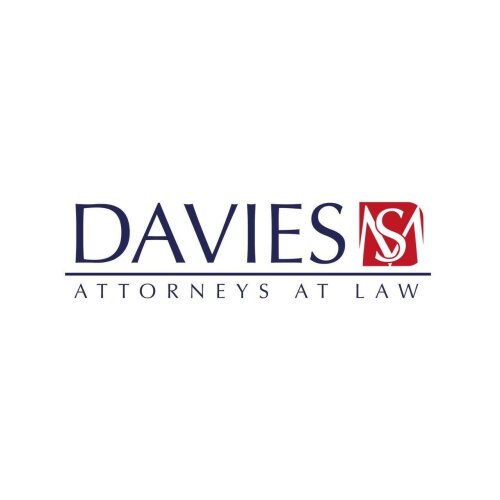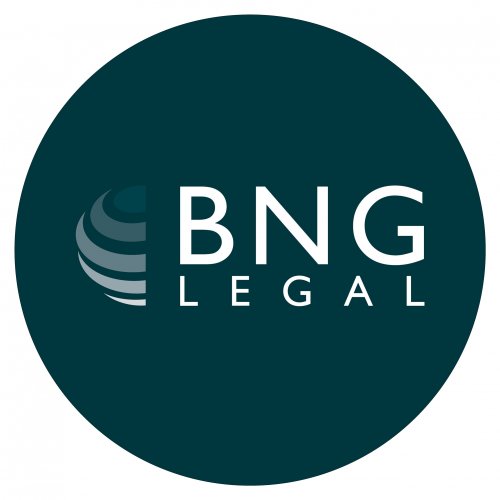Best Landlord & Tenant Lawyers in Cambodia
Share your needs with us, get contacted by law firms.
Free. Takes 2 min.
Free Guide to Hiring a Real Estate Lawyer
Or refine your search by selecting a city:
List of the best lawyers in Cambodia
About Landlord & Tenant Law in Cambodia
The law regarding landlords & tenants is an essential area of Cambodian real estate law. It lays down the legal framework that governs the contractual relationship between a tenant (lessee) and landlord (lessor). This law, which comes under the Civil Code of Cambodia, sets forth the rights and obligations of both parties. Notably, it covers topics such as lease agreements, rental prices, property maintenance, eviction processes, and more.
Why You May Need a Lawyer
It's crucial to seek legal counsel in various landlord & tenant situations. If you're a tenant facing issues like incorrect eviction notices, illegal landlord entry, rent increases, or non-return of security deposits, it is prudent to consult a lawyer. On the other hand, if you're a landlord dealing with disruptive tenants, non-payment of rent, property damage, or guidance to prepare legal lease agreements, a lawyer's advice can be invaluable. A lawyer can help you better understand your rights and obligations under the law, ensuring your interests are well-protected.
Local Laws Overview
The primary law governing landlord-tenant relationships in Cambodia is the Civil Code. It outlines the broad scope of rights and duties both parties should adhere to. Some features include rental price determination (Article 604), which should be agreed upon at the contract's commencement, and provisions about property renovations (Article 617 & 618), which usually require the landlord's consent. The code also outlines the procedures for terminating a lease for various reasons. Importantly, Cambodian law respects the principle of contract freedom and places considerable importance on the lease contract's provisions. Therefore, it is pivotal to have a well-drafted lease agreement in place.
Frequently Asked Questions
What is the usual lease period in Cambodia?
Lease periods in Cambodia can vary greatly, ranging from several months to several years. However, it is common for most residential lease agreements to last for one to two years.
Can a landlord increase the rent during the lease period?
If the lease agreement doesn't explicitly allow rent increases, the landlord cannot impose them during an ongoing lease. However, for extended leases, periodic rent reviews may be stipulated in the agreement.
Can a landlord evict a tenant before the lease period ends?
Generally, landlords must respect the agreed lease term. However, as per Article 632 of the Civil Code, a landlord can end the lease early if the tenant fails to pay rent or does not respect the management rules.
Who is responsible for repairs and maintenance?
The landlord is usually responsible for significant repairs unless the lease agreement specifies otherwise. Minor maintenance is typically the tenant's responsibility.
What happens if a tenant wants to leave before the lease term finishes?
Unless there are special provisions in the lease, early termination usually requires the tenant to compensate the landlord for the remaining lease period or find a replacement tenant.
Is a written lease necessary?
Although not always legally required, having a written lease is strongly recommended to outline both parties' rights and obligations.
Additional Resources
For additional help and resources, the Ministry of Land Management, Urban Planning, and Construction is a government body that oversees property matters in Cambodia. Professional chambers like the Bar Association of Cambodia also provide legal aid services that could be beneficial.
Next Steps
If you need legal assistance regarding a landlord & tenant matter in Cambodia, your first step should be to consult a local lawyer specializing in real estate law. The lawyer can interpret existing agreements, advise on your rights, and act as your representative before the courts if necessary. Always ensure to understand fully your legal obligations under the lease agreement and the Civil Code before making any decisions.
Lawzana helps you find the best lawyers and law firms in Cambodia through a curated and pre-screened list of qualified legal professionals. Our platform offers rankings and detailed profiles of attorneys and law firms, allowing you to compare based on practice areas, including Landlord & Tenant, experience, and client feedback.
Each profile includes a description of the firm's areas of practice, client reviews, team members and partners, year of establishment, spoken languages, office locations, contact information, social media presence, and any published articles or resources. Most firms on our platform speak English and are experienced in both local and international legal matters.
Get a quote from top-rated law firms in Cambodia — quickly, securely, and without unnecessary hassle.
Disclaimer:
The information provided on this page is for general informational purposes only and does not constitute legal advice. While we strive to ensure the accuracy and relevance of the content, legal information may change over time, and interpretations of the law can vary. You should always consult with a qualified legal professional for advice specific to your situation.
We disclaim all liability for actions taken or not taken based on the content of this page. If you believe any information is incorrect or outdated, please contact us, and we will review and update it where appropriate.
Browse landlord & tenant law firms by city in Cambodia
Refine your search by selecting a city.











